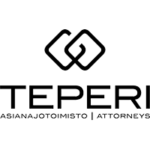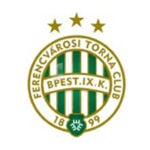-
Do you have a specific sport tribunal in your country to decide sports-related domestic issues for one or more disciplines? Are there any other sports-specific alternative dispute resolutions in your country, i.e. mediation, conciliation, or sports ombuds instance? Are there cases that can or cannot be submitted to a specific sports tribunal or cannot be subject to arbitration (e.g. labor disputes)?
In Türkiye, the resolution of sports-related disputes is structured around a dual system that distinguishes between the general framework applicable to most sports and the special autonomy granted to football. Pursuant to Law No. 3289 on Youth and Sports Services, the Sports Arbitration Board was established within the Ministry of Youth and Sports as the supreme arbitral authority for disputes involving athletes, clubs, coaches, referees, and other license-holders. Decisions of this Board are final and binding, with no recourse to the ordinary courts except on limited annulment grounds under administrative law. While alternative dispute resolution mechanisms such as mediation exist under the general Code of Civil Procedure (Law No. 6100) and the Law on Mediation in Civil Disputes (Law No. 6325), sports disputes are, in practice, channelled into arbitration. However, Article 5/3 of the Regulation on the Arbitration Board expressly excludes contractual and financial claims—such as receivables arising from transfers, service, or agency contracts—which must instead be pursued before the ordinary courts, typically the labour courts in employment-related cases. Criminal matters, including offences under Law No. 6222 on the Prevention of Violence and Disorder in Sports or violent conduct under the Turkish Penal Code (Law No. 5237), are likewise reserved exclusively for the state judiciary.
Football constitutes the most significant exception, governed not by Law No. 3289 but by Law No. 5894 on the Establishment and Duties of the Turkish Football Federation (TFF). As an autonomous body of public law, the TFF has its own judicial organs—including the Dispute Resolution Chamber, the Professional Football Disciplinary Board, and the TFF Arbitration Board, with Article 6 of Law No. 5894 declaring the latter’s decisions final and beyond appeal, even from the Ministry’s central Arbitration Board. The Dispute Resolution Chamber is empowered, subject to party consent, to hear contractual disputes between clubs, footballers, coaches, and agents, as well as matters concerning sporting sanctions and training compensation, though wagerelated claims remain contested given the constitutional guarantee of access to justice and occasional recognition of labour court jurisdiction. At the international level, the Court of Arbitration for Sport (CAS) remains competent only in disputes falling within FIFA and UEFA’s remit. Taken together, this framework creates a hybrid structure: a centralized arbitral mechanism for most sports, a separate autonomous regime for football under the TFF, and firm constitutional and statutory limits that preserve the jurisdiction of the ordinary judiciary in financial, labour, and criminal matters.
-
How is Sports law codified in your country? Is there a specific Statute or Code? Are there national sports authorities, independent agencies, or government ministries responsible for oversight?
In Türkiye, sports law is not codified within a single comprehensive statute but is dispersed across multiple legislative instruments, secondary regulations, and federation by-laws. The cornerstone of the general framework is Law No. 3289 on Youth and Sports Services, which regulates the organization and administration of sport, delineates the duties and powers of federations, and establishes the Arbitration Board within the Ministry of Youth and Sports as the supreme authority for disputes in most disciplines. Complementing this structure are two further pillars: Law No. 6222 on the Prevention of Violence and Disorder in Sports, which introduces criminal and administrative measures against spectator misconduct, doping, and match-fixing, and operates in tandem with the Penal Code; and Law No. 7405 on Sports Clubs and Federations, enacted in 2022, which modernizes the governance of clubs by regulating incorporation, oversight, and financial accountability. Oversight of sport more broadly rests with the Ministry of Youth and Sports and its General Directorate, which issue secondary legislation, approve federation statutes, and ensure compliance with national law. Other specialized actors also play a role, such as the Spor Toto Organization, which holds the state monopoly over betting, and the Türkiye Anti-Doping Commission, accredited by WADA, which conducts and enforces doping control.
Football, however, is subject to a distinct lex specialis regime under Law No. 5894 on the Establishment and Duties of the Turkish Football Federation (TFF). Recognized as an autonomous legal entity, the TFF wields independent regulatory and disciplinary authority, maintains its own arbitral tribunal (the TFF Arbitration Board), and exercises exclusive competence over licensing, transfers, and disciplinary matters in football, while remaining bound by FIFA and UEFA’s overarching framework. This unique structure reflects both the constitutional principle of sporting autonomy and Türkiye’s commitment to international football governance. The Turkish National Olympic Committee, although organized as a private-law association, functions in accordance with the Olympic Charter and collaborates with the state and international bodies, further highlighting the hybrid public-private nature of sports regulation in Türkiye. Taken together, these statutes and institutions produce a fragmented but specialized system: Law No. 3289 as the general backbone, Law No. 6222 as the integrity regime, Law No. 7405 as the corporate governance statute, and Law No. 5894 as the special framework for football—complemented by federation by-laws and international obligations, they collectively constitute the enforceable body of sports law in Türkiye.
-
Advertising and marketing in sport: which are the limitations foreseen in your country, for instance in relation to alcohol, tobacco or betting advertising on or around sports infrastructure, on official clothing, etc.?
Turkish law imposes strict prohibitions on alcohol, tobacco, and gambling advertising in sports. In respect of alcoholic beverages, Article 6 of Law No. 4250 on Alcohol and Alcoholic Beverages expressly prohibits all forms of advertising, promotion, and sponsorship, including indirect methods such as product placement. This statutory ban is implemented through the Regulation on Procedures and Principles Regarding the Sale and Presentation of Tobacco Products and Alcoholic Beverages, whose Article 19 operationalizes the prohibition by forbidding the use of alcoholic beverage logos, brands, or any other distinctive signs in sports arenas, cultural events, media, and similar platforms. Tobacco advertising is subject to an equally comprehensive prohibition under the Anti-Smoking Law No. 4207, Article 3, which bans all forms of advertising, announcements, and sponsorship relating to tobacco products. Consequently, sports events, team uniforms, and stadium signage may not lawfully display alcohol or tobacco brands or trademarks.
Gambling sponsorship and advertising are likewise tightly regulated. Pursuant to Law No. 7258 on the Regulation of Betting and Games of Chance in Sports Competitions, Article 5, the organization, promotion, or advertisement of unauthorized sports betting constitutes a criminal offence. Only the state authority, Spor Toto Organization, is authorized to operate sports betting, and its licensing regime is strictly administered. In practice, this framework ensures that all commercials, sponsorships, and promotions by unauthorized betting operators are unlawful, leaving Spor Toto as the sole lawful sponsor in the field of sports betting.
-
Match-fixing: How is match-fixing and other forms of match manipulation combated in your country? Has your country ratified the Macolin Convention? What is the role of the sports betting industry in your country and is it subject to any specific state regulations?
Match-fixing is criminalized under Turkish law through Law No. 6222 on the Prevention of Violence and Disorder in Sports, Article 11, which prohibits any agreement, inducement, or attempt to manipulate the result of a sporting competition and criminalizes the granting or receiving of illicit incentive payments. The provision prescribes imprisonment for those who engage in such conduct and establishes match-fixing as a serious criminal offence. While Law No. 6222 primarily addresses the individual criminal liability of players, officials, and third parties, disciplinary sanctions against clubs—such as relegation, points deduction, or annulment of titles— are imposed separately by sports federations (e.g. the Turkish Football Federation) under their own regulations, in line with FIFA and UEFA integrity rules. In parallel, at the disciplinary level, the Turkish Football Federation’s Disciplinary Regulation, Article 56, explicitly prohibits influencing the result or course of a match contrary to law or sporting ethics, including through incentive payments. Violations may result in severe sanctions such as permanent deprivation of rights for individuals, relegation of clubs to a lower division, points deduction, or fines, with attempted violations also punishable. Thus, while Law No. 6222 primarily addresses individual criminal liability of players, officials, and third parties, Article 56 of the TFF Disciplinary Regulation ensures that clubs and participants are subject to comprehensive disciplinary sanctions, in line with FIFA and UEFA integrity rules. Türkiye has signed but not yet ratified the Council of Europe Convention on the Manipulation of Sports Competitions (Macolin Convention, 2014), with parliamentary approval still pending.
Sports betting in Türkiye is subject to a strict state monopoly. Under Law No. 7258 on the Regulation of Betting and Games of Chance in Sports Competitions, Article 5, only the Spor Toto Organization is authorized to organize and license fixed-odds and mutual betting on sports events, while unauthorized betting operations and the “promotion, advertising, or facilitation” of illegal betting activities are criminalized. Complementing this criminal framework, the TFF Disciplinary Regulation, Article 57, establishes a comprehensive disciplinary regime: persons under the TFF’s jurisdiction are prohibited from directly or indirectly participating in betting or similar games of chance on football, or from holding any role or financial interest in betting operators (except state institutions). Breaches are punishable by suspensions of three months to one year, while unauthorized betting advertisements in stadiums or other media attract severe sanctions, including substantial monetary fines and points deductions (e.g. up to -3 points alongside escalating fines ranging from 125.000.-TL to 10.000.000.-TL depending on league level and repetition). This dual framework ensures that betting integrity is safeguarded in Türkiye through both criminal sanctions under Law No. 7258 and disciplinary sanctions under TFF Disciplinary Regulation Article 57, in harmony with FIFA and UEFA integrity standards.
-
Is there an institution safeguarding the integrity across sports in your country, e.g. ethics and doping violations or abuse cases? Which rules does such an institution apply?
Türkiye does not have a single centralized “Integrity Agency”; rather, responsibility is distributed across several institutions. Anti-doping matters are governed by national regulations aligned with the World Anti-Doping Code, and are administered by the Türkiye Anti-Doping Commission (TADC), which functions as the National Anti-Doping Organization (NADO) accredited by WADA. Doping rule violations lead to sanctions such as suspensions, and decisions may be appealed in line with the Code before the Court of Arbitration for Sport (CAS).
In the field of ethics and integrity, individual sports federations establish their own bodies and codes. For example, the Turkish Football Federation (TFF) Statutes provide for an independent Ethics Board, tasked with safeguarding the integrity of football by investigating breaches of ethical conduct, in harmony with FIFA and UEFA integrity frameworks. Other federations have Ethics or Fair Play Committees, which apply federation-specific ethics codes often modeled on IOC and international federation rules. Issues of child protection and abuse are covered primarily by the Turkish Penal Code (e.g. offences against minors) and by federation-level regulations; some federations have created specialized “Child Rights” or “Safe Sport” committees to supplement criminal law protections.
Accordingly, integrity in Turkish sport is safeguarded through a multi-layered framework: (i) anti-doping enforcement by the NADO under WADA rules, (ii) federation-level ethics committees applying sport-specific ethical codes, and (iii) national criminal law for abuse and other serious violations.
-
How is corruption in sport regulated in your country? Is corruption between private individuals subject to criminal or civil liability and are there any sport specific corruption regulations?
Türkiye does not have a stand-alone “sports corruption” statute beyond the specific provisions on match-fixing and incentive payments contained in Law No. 6222 on the Prevention of Violence and Disorder in Sports and TFF Disciplinary Regulation. Other forms of corrupt conduct in sport are addressed under the general provisions of the Turkish Penal Code (TPC). For example, bribery (TPC Articles 252 et seq.), fraud (TPC Articles 157–158), abuse of trust (TPC Article 155), or misuse of credit can all apply to schemes involving club officials, referees, or private actors. Importantly, criminal liability under the TPC attaches even to corrupt dealings between private parties and is not confined to public officials.
On the civil side, corruption in sport does not trigger a special liability regime: injured parties must rely on general tort law (Turkish Code of Obligations, Articles 49 ff.) or contract law principles to claim damages arising from fraudulent or corrupt acts. The only lex specialis remains Law No. 6222, Article 11, which criminalizes match-fixing and incentive payments, together with disciplinary measures in the TFF Disciplinary Regulation, Article 56, ensures that manipulation of match results is both a crime and a disciplinary offence. Beyond this, the regulation of corruption in sport rests entirely on the general criminal and civil law framework.
-
How is fan behavior regulated by law (for example banning orders, criminal penalties for violence, specific laws addressing measures against violence at sporting events etc.)?
Fan behavior in Türkiye is regulated through a layered framework combining Law No. 6222 on the Prevention of Violence and Disorder in Sports, the Turkish Penal Code (TPC), and the disciplinary regulations of national sports federations. Under Article 18 of Law No. 6222, prosecutors and courts may impose stadium bans on individuals who incite violence, engage in disorder, or commit offences at sporting events, with violations constituting a separate offence. Article 22 of Law No. 6222 further penalizes public incitement to violence or hatred in sports with fines and an automatic one-year ban. In parallel, fan misconduct can lead to prosecution under the TPC (e.g. assault, property damage, or unlawful assembly) and is also addressed by secondary legislation of Law No. 6222 on the Prevention of Violence and Disorder in Sports, which requires clubs to enforce ticketing controls security screening, surveillance, and segregation of rival fans.
At the federation level, each sports federation includes supporter-related provisions in its disciplinary regulations. Football provides the clearest example: the Turkish Football Federation’s Futbol Disiplin Talimatı establishes strict liability of clubs for fan conduct. Articles 52–55 regulate supporter behavior, prohibiting ugly or offensive chanting, throwing of objects, use of prohibited materials (fireworks, lasers), and pitch invasions. Sanctions range from fines to partial or full stadium closures, points deductions, or even match suspensions. Similar disciplinary codes exist in other federations (e.g. basketball, handball, volleyball), generally modeled on Law No. 6222 and international federation standards. Together, these rules create a system where Law No. 6222 ensures criminal and administrative enforcement, while federation disciplinary codes impose sporting sanctions to deter and punish supporter misconduct.
-
What legal frameworks exist around the ownership and governance of professional sports clubs (e.g. foreign ownership restrictions, fan ownership models, licensing requirements)?
The ownership and governance of professional sports clubs in Türkiye are regulated primarily by the Sports Clubs and Federations Law No. 7405, enacted in April 2022. Historically, clubs operated as non-profit associations, but the Law No. 7405 created two legal forms: (i) the special form of sports association and (ii) the Sports Joint-Stock Company. Sports joint-stock companies must be incorporated under the Turkish Commercial Code and subsequently registered both with the Ministry of Youth and Sports and the relevant sports federation. Where a Sports AŞ is affiliated with a parent club association, Law No. 7405 requires the association to retain majority voting control, thereby ensuring that the professional company remains under the ultimate authority of the parent club.
There are no statutory restrictions on foreign ownership under Law No. 7405; foreign investors may acquire shares in a Sports AŞ subject to general foreign investment and corporate rules. There is likewise no legally mandated “fan ownership” model in Turkish law, although some clubs maintain strong member-association traditions through their sports association structures. Participation in top-tier competitions (e.g. football, basketball, volleyball) is conditioned upon compliance with federation licensing requirements, which mirror UEFA and international federation club licensing systems and cover financial fair play, organizational standards, youth academies, and infrastructure. Additionally, Law No. 7405 allows certain clubs to be designated as serving the public interest, which permits eligibility for state support.
-
Do you observe an increase in multi-sport ownership in your country, either across various sports or within one sport or sports discipline?
Türkiye has not experienced a notable rise in multi-club ownership of the kind seen in Western Europe, where a single investor controls multiple professional teams across leagues or even countries. The traditional model in Türkiye remains the multi-sport association club (e.g. Galatasaray, Fenerbahçe, Beşiktaş), where football, basketball, volleyball, and other branches are organized under one umbrella, but not under the ownership of a single private individual. League and federation statutes prohibit conflicts of interest, ensuring that no person or entity may control more than one team within the same competition.
The Sports Clubs and Federations Law No. 7405 has opened the door to outside investment through the creation of Sports Joint-Stock Companies, but this framework is still new and its long-term effects on ownership models remain to be seen. At present, there is no dedicated regulation on multi-club ownership beyond the general conflict-of-interest provisions in federation and league statutes. Thus, while the traditional Turkish “club association” model supports multi-sport structures, multi-club investment across different professional teams or disciplines by single private owners is not yet a significant phenomenon in Türkiye.
-
Are there any mandatory national provisions, apart from regulations of international sports governing bodies, which regulate athlete representation in your jurisdiction and are there specific limitations to the representation of athletes, such as e.g. provisions regarding dual representation, caps on agent commissions, regulations on the protection of minor athletes?
Under Turkish law, athlete representation is regulated through a combination of statutory provisions and federation-level regulations, especially for the football. The statutory foundation is found in Law No. 5894 on the Establishment and Duties of the Turkish Football Federation, Annex-2, which sets out the framework for the licensing and supervision of agents. This annex provides that only duly licensed individuals may represent players, coaches, or clubs in negotiations and contract-related matters, and it confers authority on the Turkish Football
Federation to issue the detailed rules governing such activity. Building on this legal basis, the TFF Player Agents Regulation, adopted in harmony with FIFA’s Football Agent Regulations, contains comprehensive provisions on representation. It requires all representatives to be licensed, prohibits dual representation except where all parties have given their express written consent, limits agent commissions in line with FIFA’s global framework (generally to a range of three to ten percent of the contract value), and introduces safeguards for the protection of minors by making parental or guardian consent mandatory for the representation of players under eighteen and by restricting the duration and terms of such agreements. Thus, while the overarching framework of athlete representation is shaped by international standards, Türkiye complements these with mandatory domestic provisions: Annex-2 of Law No. 5894, which provides the statutory mandate, and the TFF Player Agents Regulation, which implements detailed rules on licensing, commissions, dual representation, and the protection of minors.
-
Are there national statutory frameworks, apart from regulations of international sports governing bodies, or cases concerning the participation of transgender athletes in competitive sport in your country? How is the issue currently regulated and/or debated?
In Türkiye there is no national statute specifically regulating the participation of transgender athletes in sport. Instead, eligibility issues are generally addressed at the level of individual sports federations, which in practice apply the rules of their respective international federations. For instance, when the international athletics body (World Athletics) adopted strict rules excluding transgender women who have undergone male puberty from competing in women’s categories, Turkish athletics authorities aligned with those rules. Media reports show that Turkish federations have expressed concern or opposition to new international regulations, but they have not established separate Turkish laws.
Because Turkish law does not explicitly recognize “gender identity” as a protected ground in many contexts, legal claims based on discrimination in sport are rarely grounded in domestic sport law. The broader anti-discrimination and equality provisions (e.g. the Turkish Constitution, general equality norms) might provide a theoretical basis for challenge, but few if any court or arbitration decisions in Türkiye have set a binding precedent on transgender eligibility in sport. That said, Türkiye has been involved in academic and legal discussion around fairness and discrimination in sport, but no court has yet overruled a federation’s eligibility policy.
-
What is the legal framework for e-sports in your jurisdiction? Is there a specific Statute or Code in your country or motions to implement such?
In Türkiye, e-sports is regulated within the framework of the Turkish E-Sports Federation (TESFED), which was established in 2018 under the authority of the Ministry of Youth and Sports. Unlike traditional sports, there is no stand-alone Esports Law or Code. Instead, TESFED operates under the general framework of the Sports Clubs and Federations Law No. 7405 and is subject to the supervisory authority of the Ministry. This statute sets out the legal status of federations, their relationship to the state, and the general governance structure for sports in Türkiye.
TESFED, as the officially recognized governing body for e-sports, issues its own Statute and secondary regulations, which govern licensing, discipline, and competitions. The Statute, approved by the Ministry and published in the Official Gazette of Republic of Türkiye, outlines TESFED’s authority to regulate all national e-sports activities, license players, teams, and coaches, and organize national leagues and championships. Through its disciplinary regulations, TESFED establishes rules on fair play, sanctions for misconduct, and the protection of minors in digital gaming environments. Its licensing regulations govern the registration of e-sports clubs, teams, and athletes, requiring compliance with federation standards before participation in official competitions.
At present, there is no dedicated national legislation addressing issues such as contractual stability, image rights, or transfers in e-sports beyond the general provisions of Turkish civil, commercial, and intellectual property law. However, TESFED’s by-laws and regulations, backed by Law No. 7405, provide the operative framework. While proposals have occasionally been raised in policy discussions about adopting a dedicated E-Sports Law, no such statute has yet been enacted, and regulation remains at the federation level under the Ministry’s oversight.
-
Which has been the leading sports law case of the past year in your country?
A leading Turkish sports-law dispute of the past year arose from Merih Demiral’s twomatch suspension at UEFA Euro 2024. After scoring in Türkiye’s round-of-16 victory over Austria on 2 July 2024, Demiral celebrated with the so-called “grey wolf” hand gesture; UEFA’s disciplinary bodies treated the gesture as a prohibited political manifestation and imposed a twogame ban on 5 July 2024. In explaining the sanction, UEFA relied on the UEFA Disciplinary Regulations (2024) provisions on general principles of conduct—including violating “the basic rules of decent conduct,” using a sporting event for a non-sporting (political) manifestation, and bringing football into disrepute—and publicly stated those grounds when announcing the decision. The Turkish Football Federation (TFF) sought urgent relief, but under Article 63 of the UEFA Statutes the CAS lacks competence to hear appeals where a natural person is suspended for up to two matches; Demiral therefore served the suspension (missing the quarter-final against the Netherlands), and the matter did not proceed to a merits review. The case generated intense public and diplomatic reaction in Türkiye and has been widely discussed for the tension it spotlights between freedom of expression and the sport’s commitment to political neutrality under UEFA disciplinary rules.
-
What other sports law topic(s) would you highlight as being very current and relevant in your country?
During the course of the Fenerbahçe presidential election held on 20-21 September 2025, significant public debate arose over Sadettin Saran’s commercial link to the betting operator Tuttur.com. This concern stemmed from the fact that Article 57 of the TFF Disciplinary Regulation prohibits persons subject to the Regulation from directly or indirectly participating in betting or similar games of chance relating to football competitions, and further bars them from holding any role or financial interest in enterprises that promote, organize, or intermediate such activities. On its face, this provision aims to ensure that football’s integrity is safeguarded against even the appearance of conflicts of interest between governance and gambling.
The same principle is reflected at the international level. Under the FIFA Code of Ethics Article 27, officials and participants are expressly forbidden from taking part in betting, gambling, lotteries, or similar events related to football, and must avoid situations that create a conflict between their duties and private interests. Likewise, the UEFA Disciplinary Regulations, Article 12(2)(b), classify betting-related involvement as conduct that “violates the basic rules of decent conduct” and constitutes improper influence on the integrity of competitions. These international provisions, mirrored in the Turkish disciplinary framework, are designed to prevent both actual manipulation and the perception that football officials could profit from betting-related enterprises.
Accordingly, while Mr. Saran’s candidacy and eventual election raised questions regarding his affiliation with a betting operator, the legal framework—domestically through TFF Disciplinary Regulation Article 57 and internationally through FIFA and UEFA ethics and disciplinary provisions—sets a clear expectation that club officials must be fully divested of such interests. Compliance in practice therefore requires severing any ownership or control ties to betting companies prior to formally assuming football governance office, in order to dispel conflicts and ensure conformity with both national and international integrity standards.
Türkiye: Sports Law
This country-specific Q&A provides an overview of Sports laws and regulations applicable in Turkey.
-
Do you have a specific sport tribunal in your country to decide sports-related domestic issues for one or more disciplines? Are there any other sports-specific alternative dispute resolutions in your country, i.e. mediation, conciliation, or sports ombuds instance? Are there cases that can or cannot be submitted to a specific sports tribunal or cannot be subject to arbitration (e.g. labor disputes)?
-
How is Sports law codified in your country? Is there a specific Statute or Code? Are there national sports authorities, independent agencies, or government ministries responsible for oversight?
-
Advertising and marketing in sport: which are the limitations foreseen in your country, for instance in relation to alcohol, tobacco or betting advertising on or around sports infrastructure, on official clothing, etc.?
-
Match-fixing: How is match-fixing and other forms of match manipulation combated in your country? Has your country ratified the Macolin Convention? What is the role of the sports betting industry in your country and is it subject to any specific state regulations?
-
Is there an institution safeguarding the integrity across sports in your country, e.g. ethics and doping violations or abuse cases? Which rules does such an institution apply?
-
How is corruption in sport regulated in your country? Is corruption between private individuals subject to criminal or civil liability and are there any sport specific corruption regulations?
-
How is fan behavior regulated by law (for example banning orders, criminal penalties for violence, specific laws addressing measures against violence at sporting events etc.)?
-
What legal frameworks exist around the ownership and governance of professional sports clubs (e.g. foreign ownership restrictions, fan ownership models, licensing requirements)?
-
Do you observe an increase in multi-sport ownership in your country, either across various sports or within one sport or sports discipline?
-
Are there any mandatory national provisions, apart from regulations of international sports governing bodies, which regulate athlete representation in your jurisdiction and are there specific limitations to the representation of athletes, such as e.g. provisions regarding dual representation, caps on agent commissions, regulations on the protection of minor athletes?
-
Are there national statutory frameworks, apart from regulations of international sports governing bodies, or cases concerning the participation of transgender athletes in competitive sport in your country? How is the issue currently regulated and/or debated?
-
What is the legal framework for e-sports in your jurisdiction? Is there a specific Statute or Code in your country or motions to implement such?
-
Which has been the leading sports law case of the past year in your country?
-
What other sports law topic(s) would you highlight as being very current and relevant in your country?













